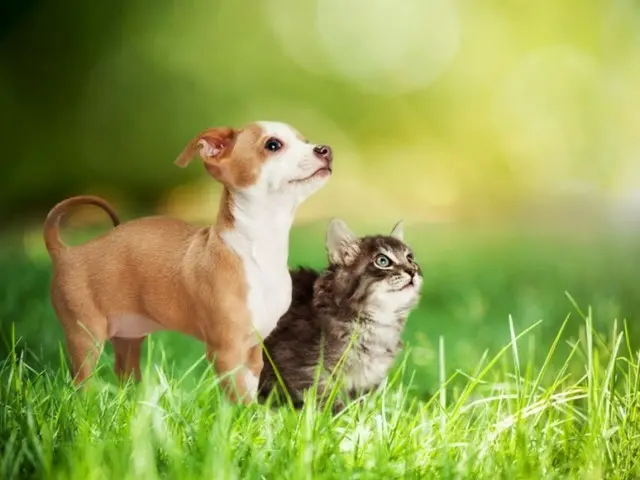ing. This is an increase of more than 20% in just three years from 5.02 million households at the end of 2017. Looking at the pets kept by type as of the end of 2020, 80.7% were dogs and 25.7% were cats.
followed by ornamental fish, hamsters, birds, and rabbits. Along with this, pet-related markets and industries are also rapidly growing. Meanwhile, according to the Korean media E-Daily, dog lovers are now using various types of dogs.
It is said that ``raw food for dogs,'' which is a mixture of raw meat and nutritional supplements, is becoming popular. The article introduces the voice of a YouTuber and trainer who says he spends 3.51 million won (approximately 390,000 yen) a month on dog food.
In South Korea, it is common to refer to pets as ``companion animals.'' In the past, it was common to use the expression "pet animals," but animals are not humans' pets, but rather creatures that coexist with humans.
This idea spread. The pet boom is due to the increase in single-person households and an aging society. More and more people are investing generously in their pet companions. pets and e
The word ``pekkonomy'', which is a combination of ``conomy'', is also becoming established. According to a report by the Korea Rural Economic Research Institute, the market value of the pet-related industry was 1.8994 trillion won in 2015.
Mo predicts that it will grow to over 6 trillion won in 2027. South Korea's Yonhap News reported in April this year that South Korea's major credit card company Shinhan Card's Shinhan Card Big Debit
Introducing the results of a survey conducted by Data Research Institute. From 2019 to 2022, the annual average amount spent by card users at veterinary hospitals, dog hotels, dog cafes, dog beauty salons, etc.
An analysis by the institute found that the average amount spent last year was 353,000 won, an increase of 91,000 won from 262,000 won in 2019. 280,300 in 2020
0 won, and 313,000 won in 2021, which shows that the amount of card spending on the pet market is increasing every year. In the past, there was a lot of demand for pet-related products related to food, clothing, and shelter.
Recently, various products have appeared. There are also companies that specialize in pet skin care, funerals, and insurance. Additionally, the number of stores specializing in pet clothing and accessories is increasing. Dietary supplement
Sales are also increasing. According to a report by E-Daily on the 3rd of this month, pet food has recently become more expensive. Among dog lovers, raw dog food, which is a mixture of various raw meats and nutritional supplements, is popular among dog lovers.
It is said that it is now fashionable to give people ``. The media said, ``On SNS, you can see many photos and videos with the hashtag 'raw food for dogs.''Most videos contain various types of raw food.
The video shows how to prepare dog food by adding meat, nutrients, and vegetables. There is a wide variety of raw meat used, including chicken and horse meat."
Trainer Kang Hyun-wook, nicknamed the “Dog President,” responded to an interview with the same media.
introduces his dog's menu on his YouTube channel. In a video released on a certain day, German-made feed containing trout and duck, pet milk containing protein, salmon oil, and crushed
He released a ``raw food'' mixture of duck neck bones, boiled horse meat, Korean beef feet, quail, lactic acid bacteria, and chicken blocks. Trainer Kang told the same media, ``I spend 351 yen a month on dog food.
I will spend 10,000 won,'' he said. On the other hand, Mr. Kang said, ``I am a professional, so I feed this kind of food, but the current feed is so good that I can just feed it as well.''
"I want people to never watch my video and try to imitate the special menus that I have created to suit their physical condition, age, and tastes."
On the other hand, as the pet boom continues to grow, there are cases of people starting pets too easily and leaving them without being raised, and cases of cruelty to animals.
is also a problem. As mentioned above, in Korean, the term ``companion animal'' is becoming more common, rather than the former ``pet animal.'' But the pet boom is heating up
Buri and the problems that have arisen with it give the impression that we have not completely broken away from the past way of thinking of animals as objects to be pet. Animals and humans share the role of “companions” and “companions.”
We need to continue to create an environment where people can be happy.
2023/12/05 11:44 KST
Copyrights(C)wowkorea.jp 5

